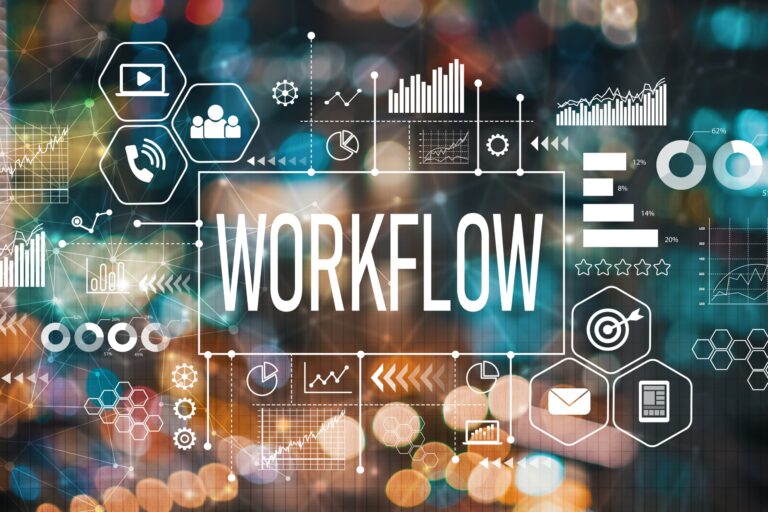In 2025, marketing is very different from what it was just a few years before. More marketing, more client data, and more ways to communicate are being handled by agencies than ever before. What used to be easy to handle with a bunch of files and simple tools is now a complicated ecosystem that needs organization and the ability to grow. At this point, picking the best CRM for agencies is no longer a choice; it’s a way to grow. With the right CRM, companies can make their work easier, keep all of their data in one place, and stand out in a crowded market.
Why Every Agency Needs a CRM
When you run a marketing firm, you have to deal with a lot of things at once, like getting new clients, running campaigns, reporting, billing, developing leads, and communicating. Without a unified system, each of these steps is carried out separately, which causes delays in delivery and lowers profits. A CRM made for agencies gives all the different parts of the business a single place to meet and work together. Teams can keep an eye on every lead, handle accounts, schedule jobs that need to be done over and over, and see real-time results.
A good CRM not only helps with operations, but it also makes ties with clients stronger. They want to know what’s going on, get answers quickly, and trust the info you give them. Instead of switching between tools to make reports or handle processes, agencies can use a CRM to give clients a single, branded site that has everything from payment information to campaign screens. Not only does this kind of connection save time, it also builds trust, which has a direct effect on customer retention and recommendations.
As the agency model changes, so does the need for marketing CRM systems that are flexible, automated, and able to handle a lot of users. There are so many platforms out there that it’s not hard to find a CRM; it’s hard to find the one that really meets the needs of digital companies.
Top 5 CRM Tools for Marketing Agencies in 2025
Marketing firms like a number of CRMs, but each one is best for a different job. To find the best CRM for agencies, you need to know what each tool does well and what it could do better. Right now, GoHighLevel, HubSpot, ClickUp, Pipedrive, and Monday.com are the top five tools on the market. All of them are useful, but their main strengths are very different, especially when it comes to automating, customizing, and expanding for agencies.
GoHighLevel stands out because it is a tool that was made just for agencies. Lead tracking, automation, channels, reports, and client screens are all built into one interface. GoHighLevel wasn’t made to just handle contacts like many other CRMs; it was made to replace a whole tech stack. Agencies can sign up new clients, keep leads interested with automatic processes, keep an eye on flows in real time, and even brand the whole system as their own SaaS. It has powerful management tools and a price plan that lets you have an endless number of client accounts, which makes it one of the best options for scaling.
HubSpot is a well-known CRM company. Lots of links, easy to use, and strong marketing and sales tools that work on their own. HubSpot, on the other hand, was made for small sales teams rather than big marketing firms with lots of clients. When a company gets bigger, its prices go up quickly, and some of its more powerful tools can only be used with expensive business plans. HubSpot works great for big businesses with their own marketing teams, but it can be too expensive and hard to use for small businesses that need to be quick and adaptable.
It’s not a typical CRM, but ClickUp has become popular among companies that want to keep track of jobs, clients, and processes all in one spot. The best things about it are that it can handle tasks, communicate internally, and automate processes. It can be changed to keep track of leads and client actions, but it needs a lot of setup before it can really work as a CRM. ClickUp is often used with other tools by agencies, which can add to the work that needs to be done. It’s great for keeping track of tasks, but it doesn’t have any built-in CRM features, like lead development channels or marketing automations.
Pipedrive is all about making things easy and showing the sales flow. It’s made for teams that need an easy way to keep track of deals and deals in progress. There aren’t enough automatic or white-label options for companies to handle many accounts at once, but it’s easy to use and works with many marketing tools. For small teams that want to keep their sales process organized, Pipedrive works well. However, they might need a few more tools for things like marketing automation, client platforms, or reports.
Very quickly, Monday.com went from being a tool for organizing projects to an open way to work. Companies can set up ways to manage leads, get new clients, and keep track of projects with its CRM themes and contacts. It works well for internal teams because it has clear data and tools for everyone to work together. It wasn’t made to be a CRM like ClickUp, though. Companies often have to make a lot of changes or mix it with other marketing tools from outside the company in order to get the features they need.
| Feature | GoHighLevel | HubSpot | ClickUp | Pipedrive | Monday.com |
| Contact & account management | ✔️ | ✔️ | ◐ (via CRM templates) | ✔️ | ✔️ |
| Pipeline & deal stages | ✔️ | ✔️ | ◐ (custom views) | ✔️ | ✔️ |
| Email marketing | ✔️ (native) | ✔️ (Marketing Hub) | ◐ (via integrations) | ✔️ (Campaigns) | ◐ (basic email & integrations) |
| SMS/MMS messaging | ✔️ (native) | ◐ (via integrations) | ◐ (via integrations) | ◐ (via integrations) | ◐ (via integrations) |
| Automation workflows | ✔️ (marketing + sales) | ✔️ (Workflows/Sequences) | ◐ (task/process focused) | ✔️ (automation + campaigns) | ✔️ (no-code automations) |
| Reporting dashboards | ✔️ (custom dashboards & reports) | ✔️ | ✔️ (CRM dashboards) | ✔️ | ✔️ |
| Client / customer portal | ✔️ (client portal) | ✔️ (customer portal in Service Hub) | ◐ (share views, no true portal) | ✖️ | ◐ (guest/shareable boards; not white-label) |
| White-label / SaaS mode | ✔️ (SaaS Mode) | ✖️ | ✖️ | ✖️ | ✖️ |
| Forms / landing pages / funnels | ✔️ (forms, funnels, sites) | ✔️ (forms & landing pages) | ✔️ (forms) | ✔️ (web forms) | ✔️ (WorkForms) |
| Appointment scheduling / calendar | ✔️ (calendars, paid bookings) | ✔️ (Meetings tool) | ◐ (no native scheduler) | ✔️ (Scheduler) | ◐ (calendar via integrations) |
| Invoicing & payments | ✔️ (invoices, order forms, paid bookings) | ✔️ (HubSpot Payments/Stripe) | ◐ (via integrations) | ◐ (via integrations/add-ons) | ◐ (via integrations) |
| Integrations / marketplace | ✔️ | ✔️ | ✔️ | ✔️ | ✔️ |
| Mobile app | ✔️ | ✔️ | ✔️ | ✔️ | ✔️ |
Key Differences Between These CRMs
For marketing companies, the best CRM is one that is a good balance of price, size, flexibility, and automation. Many CRMs, like HubSpot and Pipedrive, can help you keep track of sales leads, but they don’t have the features that agencies need, like websites that aren’t connected to the business and marketing processes that work together. It’s simple to keep track of tasks using project-based solutions like Monday.com and ClickUp, but they still need some work to function with CRMs.
GoHighLevel, on the other hand, was created from the ground up to address the demands of schools. It has built-in automations that hire people, talk to clients, and make reports without any help from agencies. This saves them a lot of time each week. In real time, the tool lets you run email and SMS marketing, score leads, and keep track of your flow. Because it works with white labels, companies can give their clients a branded experience that is smooth and unified. This makes them stand out from rivals who use a bunch of different tools that don’t work together.
Another big difference is how much things cost. HubSpot’s business price can be hard for a firm as it grows. GoHighLevel, on the other hand, has a flat monthly rate that covers numerous client accounts. This makes it very appealing for companies that want to grow without having to worry about prices or features that limit the number of seats they can have.
Why GoHighLevel Wins for Scalability
Scalability is where GoHighLevel really shines when considering CRM for agencies. No other tool on this list makes it as easy for agencies to handle all of their clients from one platform, simplify jobs that they do over and over, and give their own branded SaaS to more people. When you unify hiring, communication, processes, and reports, you get rid of the problems that slow agency growth.
GoHighLevel offers all of your tools in one spot, so you don’t have to keep track of a lot of them. It helps businesses avoid having to deal with a lot of various logins, linkages, and data systems, which lets them concentrate on planning and producing results for their customers. The all-in-one solution is highly useful for businesses who wish to develop swiftly and maintain their service quality high.

Conclusion
The best CRM for agencies is one that functions the same way as marketing teams do. There are a variety of CRM solutions available. HubSpot, ClickUp, Pipedrive, and Monday.com all have some excellent features, but they’re not really made for agencies. GoHighLevel has all the essential functions of a CRM. It also includes affordable costs, automation, reporting, and the ability to use it as a white label. All of these things are part of one system that may grow. It’s not simply a tool for marketing companies in 2025; it’s how they become bigger.







